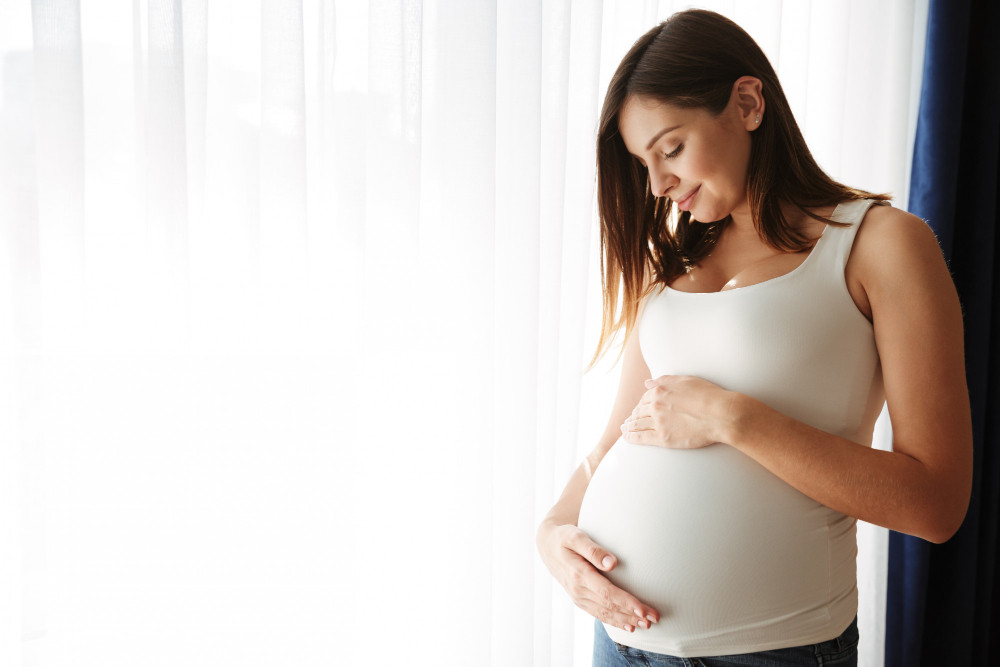Fasting in the month of Ramadan is an obligation for healthy Muslims. Children who are not yet mature and pregnant women are not required to fast because of the health risks they may experience. However, quite a few pregnant women choose to continue fasting for social and cultural reasons.
The impact of fasting on the health of mothers and babies is not yet fully understood. However, the concern that fasting causes dehydration and malnutrition in pregnant women is the main reason why pregnant women need to consider themselves before participating in fasting during Ramadan. If, during fasting, a pregnant woman experiences some unusual signs, then the fast needs to be cancelled and possibly stopped.
Signs that pregnant women need to stop fasting
Before deciding to fast, pregnant women need to consult with a doctor or midwife first. They can help check whether your body is ready to fast. They can also recommend adequate nutrition and water during fasting to keep the pregnancy and fetus safe.
If the doctor or midwife has stated that your body is ready to fast, you still need to be aware of the following signs that your body needs to cancel and stop fasting:
Weight loss
Healthy weight gain during pregnancy depends on your body mass index before pregnancy and your overall health condition. However, according to the American College of Obstetricians and Gynecologists (ACOG) most women are recommended to gain around 11.5-16 kg during pregnancy (depending on their pre-pregnancy weight, level of physical activity, and health condition).
Healthy weight gain during pregnancy is important to support good fetal growth and development and ensure the health of the pregnant woman. If, during fasting, a pregnant woman does not gain appropriate weight or instead experiences weight loss, then the fast needs to be cancelled and stopped.
Read more: Tips For Keeping Your Mouth Fresh During Ramadan Fasting
Experiencing signs of dehydration
Mild dehydration is usually not dangerous as long as pregnant women get enough fluids immediately. However, severe dehydration can be dangerous for both the pregnant woman and the fetus in the womb.
Dehydration can cause low levels of amniotic fluid, which can affect fetal development, increase the risk of preterm labor, and affect breast milk production after delivery. Severe dehydration can also cause nutritional deficiencies that are important for the health of the pregnant woman and fetus.
Therefore, you should be aware of the following signs of dehydration:
- Dry feeling in the throat or mouth
- Dry and chapped lips
- Skin looks dry
- The skin is less elastic, so the eyes appear sunken
- Rare urination
- Urine is darker in color
- Doesn't sweat even in hot weather
- Feeling weak or tired
- Constipation
- Feel dizzy
Read more: Good Vitamin Recommendations Drink When Fasting
As dehydration gets worse, thirst may disappear, and other symptoms may appear, including:
- Braxton Hicks contractions (false contractions)
- Dizziness and confusion
- Heart pounding
- Changes in fetal movement patterns
- Low blood pressure which can cause dizziness and even fainting
If you feel the signs above during fasting, it is important to immediately cancel the fast and break it with a sweet drink to help restore the body's blood sugar and electrolyte levels quickly. Drink enough fluids, especially water, fruit juice or oral rehydration solutions, to replace lost fluids and treat dehydration.
If symptoms do not improve after breaking the fast and drinking, then immediately consult a doctor or midwife. You may also want to consider not fasting again for the remainder of Ramadan, especially if you have a high-risk pregnancy or other health problems.
If you need medical advice or consultation, you can either visit a doctor or use the consultation features available in the Ai Care application by downloading the Ai Care application from the App Store or Play Store.
Looking for more information about pregnancy, breastfeeding, and the health of women and children? Click here!
- dr. Yuliana Inosensia
Violet N. L. Oosterwijk, et all (2021). Ramadan Fasting during Pregnancy and Health Outcomes in Offspring: A Systematic Review. Available from: https://www.ncbi.nlm.nih.gov/pmc/articles/PMC8540108/
Joanne Lewsley. Fasting in pregnancy. Available from: https://www.babycentre.co.uk/a1028954/fasting-in-pregnancy
Zawn Villines (2023). Can dehydration affect pregnancy?. Available from: https://www.medicalnewstoday.com/articles/322230
Medline Plus (2022). Managing your weight gain during pregnancy. Available from: https://medlineplus.gov/ency/patientinstructions/000603.htm
Cleveland Clinic (2022). Braxton Hicks Contractions. Available from: https://my.clevelandclinic.org/health/symptoms/22965-braxton-hicks
American Pregnancy Association. Dehydration During Pregnancy. Available from: https://americanpregnancy.org/womens-health/dehydration-pregnancy/












